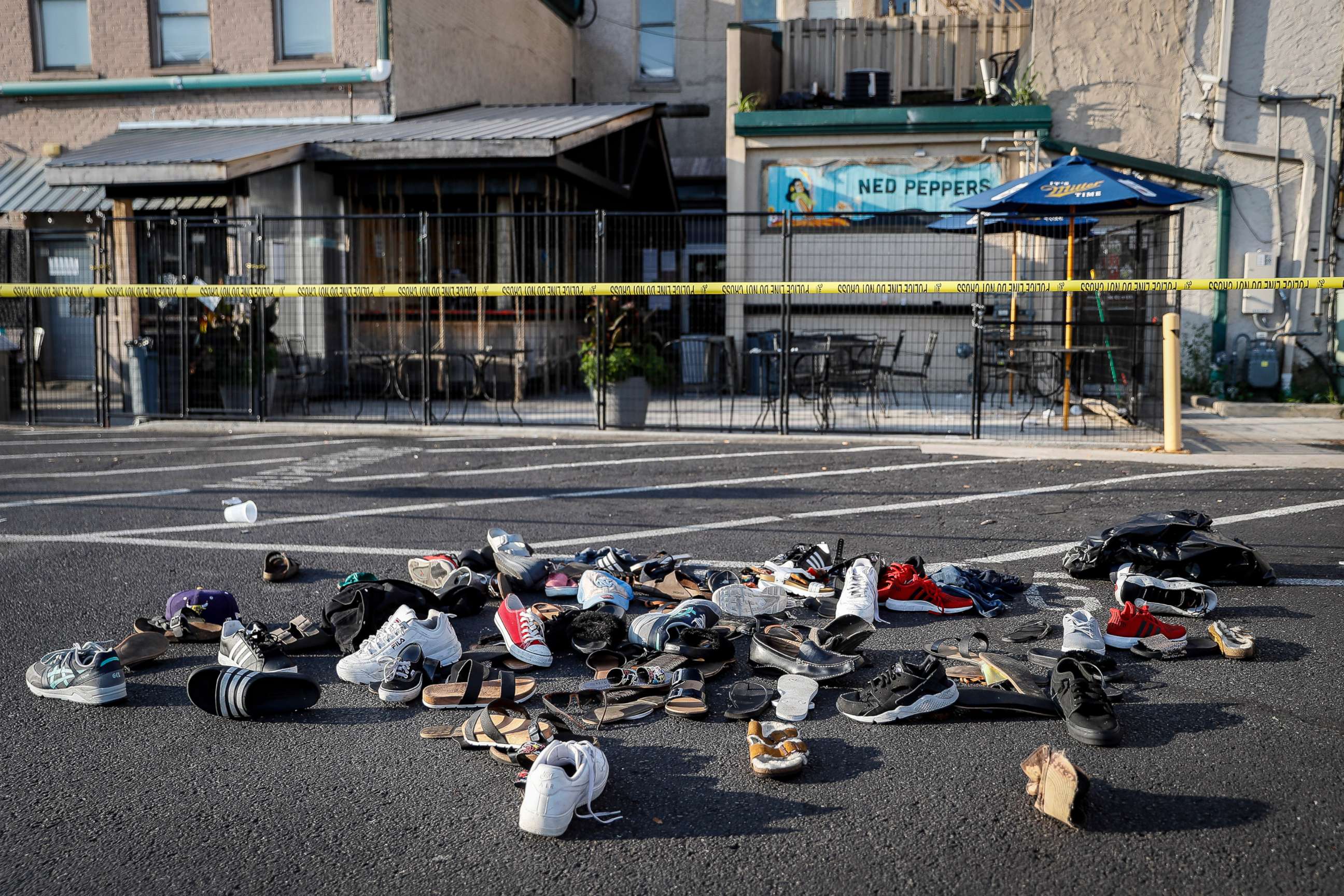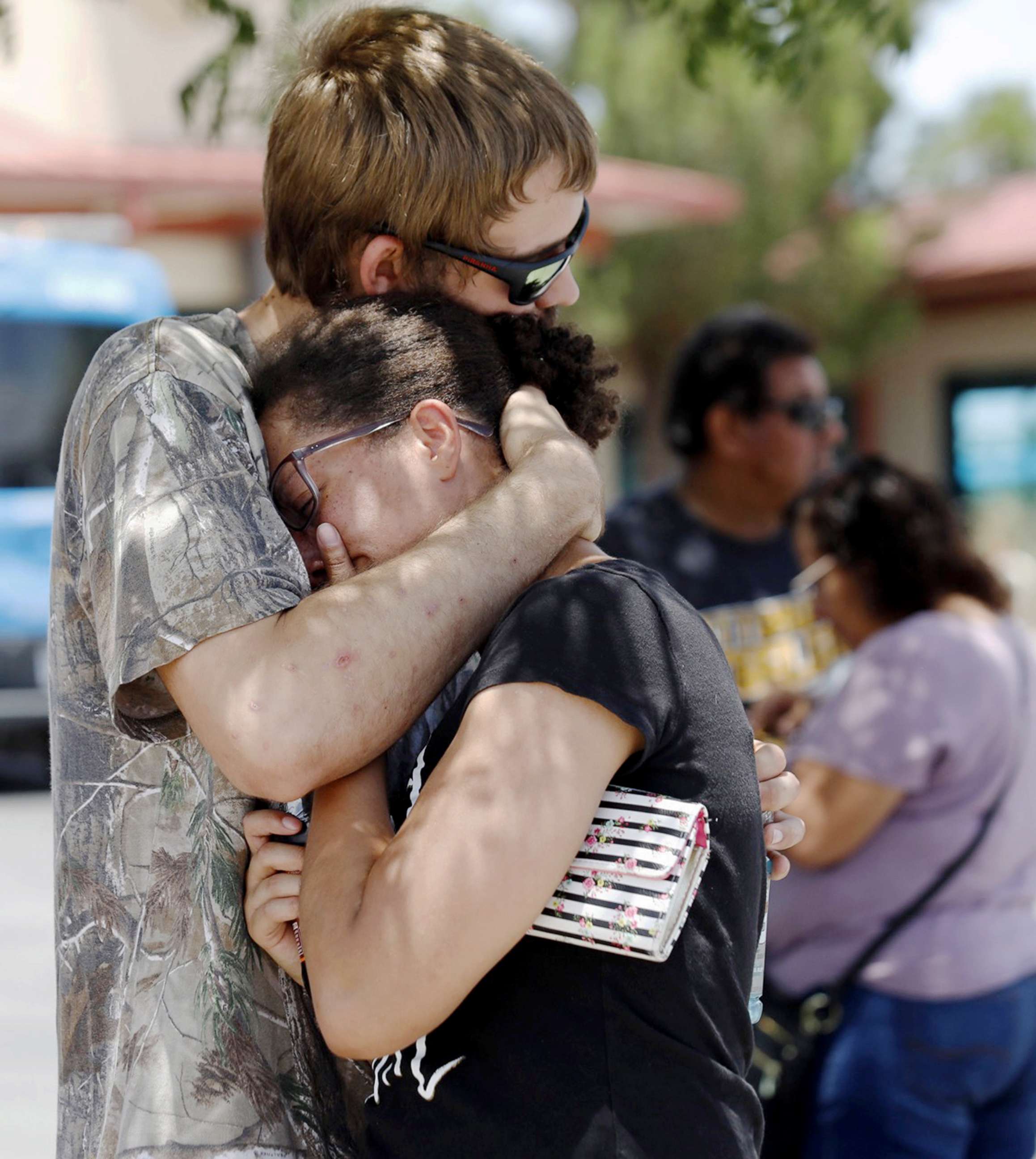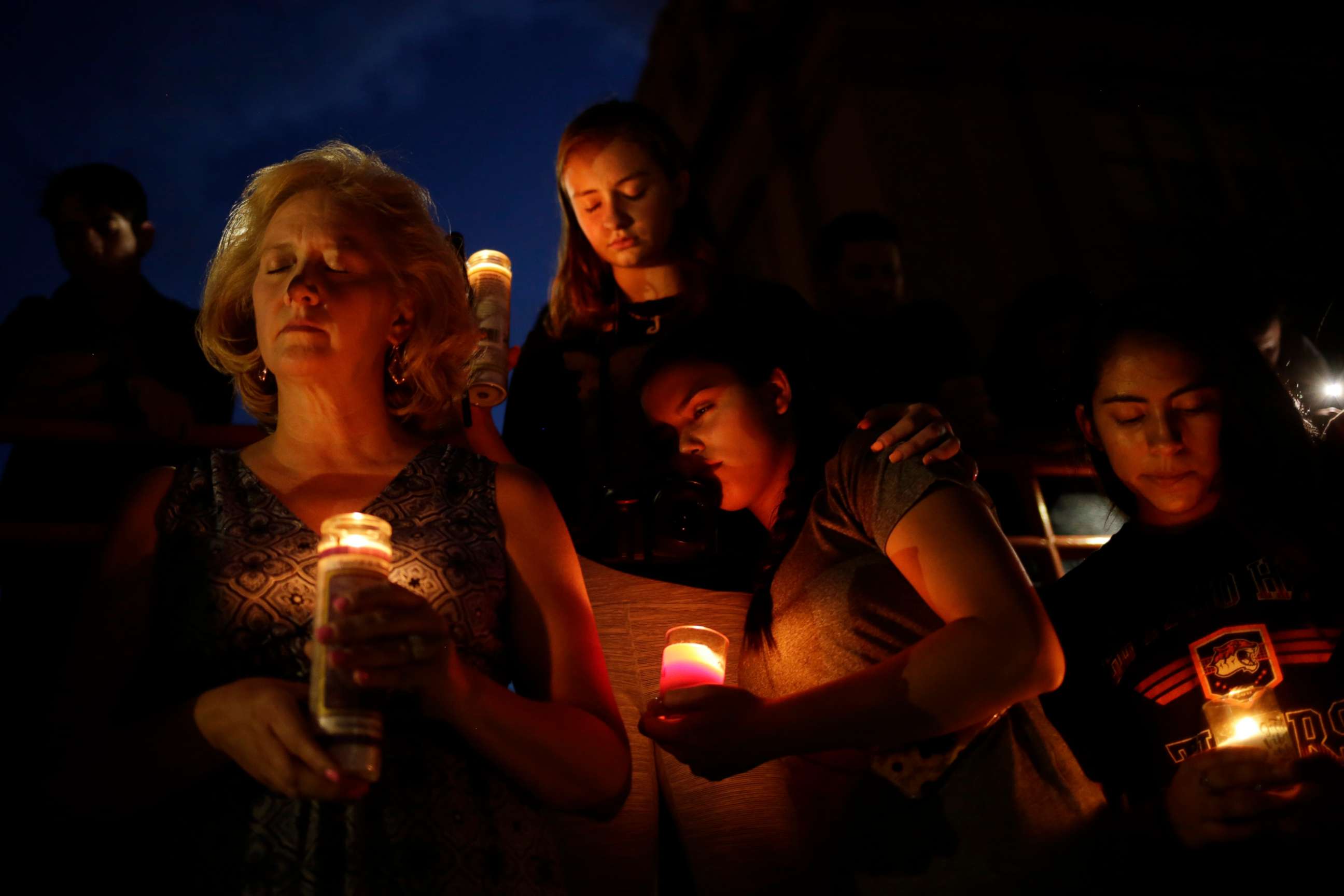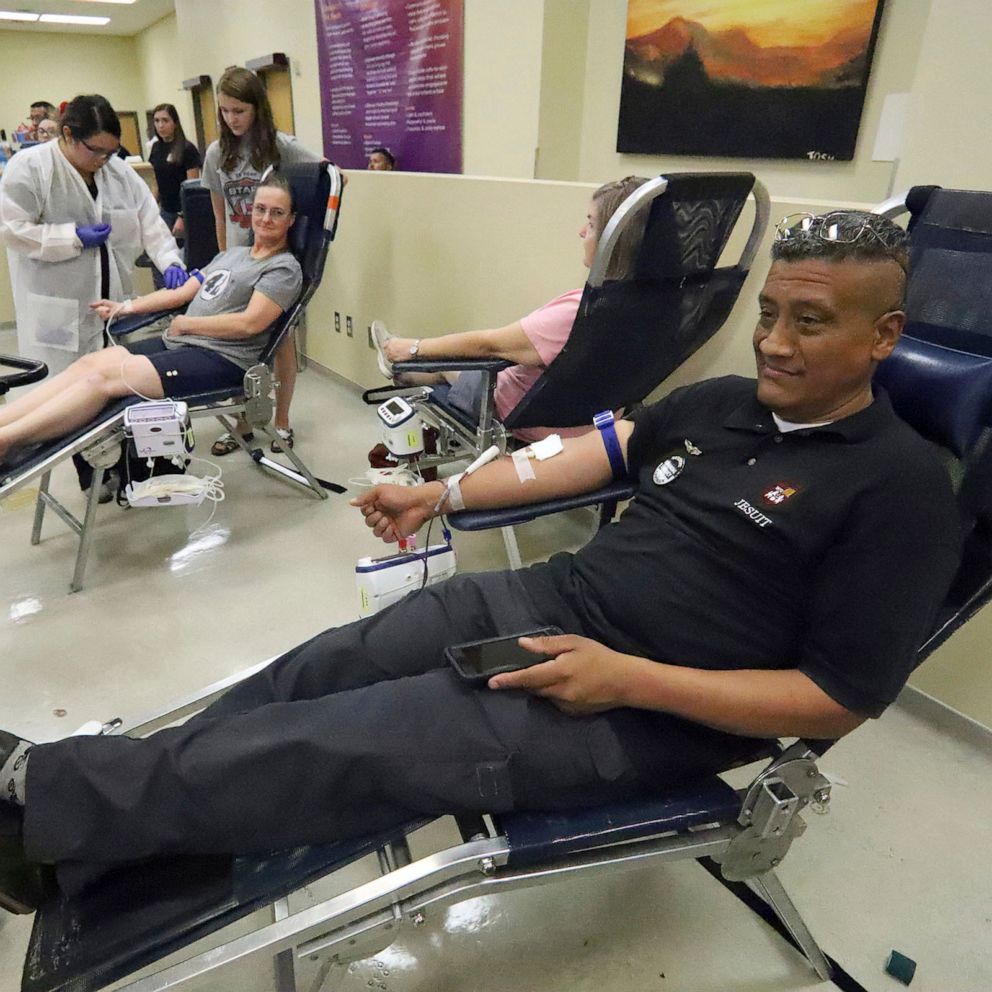How to talk to kids about the mass shootings in El Paso and Dayton
Twenty-nine people were killed this this weekend in two different massacres.
Back to back mass shootings, hundreds of miles apart -- first in El Paso, Texas, and then less than 15 hours later in Dayton, Ohio -- left at least 29 people dead this weekend, and a nation mourning yet another senseless act of violence while still processing the first.
Twenty people were killed and dozens more injured on Saturday morning in a massacre at an El Paso Walmart that was packed with back-to-school shoppers, making it one of the deadliest mass shootings in U.S. history, officials said. Children were among the victims.
In Dayton, at least nine people were killed and 27 injured in 30 seconds early on Sunday after a gunman wielding an AK-47-style assault rifle opened fire in the city's bustling downtown downtown district, according to police. The shooting suspect's sister was among the victims, according to authorities.

In the wake of the double tragedies, many parents are left grappling with how to explain such incomprehensible violence to their children.
Family psychiatrist Dr. Janet E. Taylor told "Good Morning America" she encourages parents to initiate a conversation with their children about the events, saying that it's not only adults who need to be able to process their emotions.
She suggests asking your children open-ended questions, like if they are aware of what happened, and then talking with them about how they're feeling about it.
"Think about our role as parents where we are feeling vulnerable ourselves but it’s our duty to create a safe container for our children," she said. "And by helping them reestablish their safety we also can reestablish our own, because we need a lot of pep talks too."
Ways to spot if your child may be feeling stressed, anxious or angry about the events that unfolded are if you notice changes in their behavior, apprehensiveness about things they normally do, fear about what could happen in safe places such as schools, churches or the mall, or changes in appetite or sleep patterns, according to Taylor.

If you notice something different in their behavior, Taylor recommends talking with them about it.
Sometimes children won't tell their parents what's going on because they don't want to upset them, but Taylor said it's important to tell them that even if you are upset, it's okay for them to talk about what they are feeling.
Being upset, sad, or angry are natural emotions and if kids don't come out and say it and talk about them, they can come out in other ways. If there is fear, acknowledge it, Taylor said.
"Be patient with them. Listen. And then if they need an extra cuddle, now is the time for face to face time," she said. "Turn off those video games. We have to unplug as parents and really pay attention to the non-verbal cues."
Author and educator Rachel Simmons described deciding how much information about a tragedy to share with your child as the "art of parenting."
"You don’t want to overwhelm your child with too much information," she said on "GMA." "Ask them what they know because so often kids get misinformation, on the school bus, on the camp bus. You want to find out what they know first."
The way parents respond to incidents like mass shootings is a model for how their children can cope, according to Simmons.

Families are where children learn how to heal, and it's important to give them a safe space to experience everything they might be feeling.
"It’s so important for us to show our feelings in front of our kids," she said. "It’s just as important to do that as it is to look tough because we are cuing our kids about how to cope emotionally. We’re giving our kids guidance on how to feel when a tragedy like this strikes."
Simmons recommends going through ways to deal with anxiety, such as breathing techniques, and modeling it so they can see how to do it.
"You can take a deep breath, count to three, hold it for three and then let it out for three, so it’s nine seconds of breathing in out and breathing out," she said. "Do it three times. They can kind of drop back into their bodies and feel a lot calmer."
If your child develops a fear of their routines, Simmons recommends focusing on what your able to control and assuring them that you are doing everything you can to make sure they are safe.
"The goal is not to stamp out our kids' anxiety," she said. "It's to give them a space where they can feel their feelings and also let them know that we're here holding them and that we're going to take care of them."
'You can't say to your kid, 'I guarantee everything is going to be okay,' but you can say, 'Here are the good people that we know and here is our home and we're safe and we love you and we're going to try every day to be safe together,'" Simmons added.






